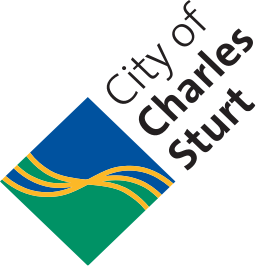At the City of Charles Sturt, we love our pets. Dogs are great companions who make our lives happier and healthier. Sometimes, dog behaviours can cause issues in the community.
Dogs must be on a lead (2 metres or less) in any public space. This includes roads, footpaths, paths, squares or other public spaces unless otherwise stated. It also includes a private place without the consent of the occupier.
Regardless of the space, dogs must be on a lead (2 metres or less) within 5 metres of any playground.
See our guide to dog on and off lead areas.
There are lots of reasons that dogs bark. They can bark because of separation anxiety, boredom, changes to lifestyle and health problems.
If you are a neighbour experiencing problems with a barking dog, there are ways to resolve issues.
Contact the dog owner
Often, dog owners are unaware that their dog is barking. A simple visit to your neighbour to inform them of the situation can be an easy fix. Face-to-face visits are most effective. But if you are uncomfortable, you can leave a note in your neighbour's letterbox.
Involve the Council
If you don't reach a resolution, we can assist in two steps.
First, we'll contact the dog owner and highlight the complaint received. We work with the dog owner to ensure the dog's physical and mental welfare needs are being met.
Our Community Safety Officers make suggestions for strategies that can reduce barking. Please allow time for the dog owner to make changes to their backyard, house or lifestyle.
If the barking persists after several weeks, please contact the Council again. We'll undertake a more formal investigation.
We'll send you an information kit with a diary to record details of the barking behaviour for 14 days. When this is complete, return it to Council for investigation.
If the problem persists, and proof that excessive nuisance barking is found, an order may be served on the owner. This legally requires them to take all reasonable steps to reduce the noise.
For help with barking dogs, read our Barking Booklet.
Please seek medical or veterinary attention immediately after a dog attack as required.
Report a dog attack
When safe to do so, please report the dog attack to us on 8408 1111.
Time is a critical factor in reporting dog attacks, especially if the offending dog is still roaming at large.
Please collect as much detailed information about the incident as you can:
- the date, time and exact location of the attack
- description of the offending dog: registration disc, name tag, breed, colour, sex, markings, collar size and colour
- description of the owner: name, address, phone number, male or female, age, hair colour, clothing
- description of any vehicles and registration numbers
- description and photographs of any injuries on you or your pet
You should also keep copies of any medical certificates, vet or doctor bills as evidence.
What happens when a dog is reported?
Community Safety Officers will attend as soon as possible if contacted at the time of the dog attack. Our team takes a statement from everybody involved and any witnesses.
Council will then consider the circumstances, make a decision for action and inform all parties of the outcome.
Who is responsible?
Dog owners are responsible for their dog's actions. It is an offence for a dog to attack, harass or chase a person, another animal or a bird owned by a person. This is under the Dog & Cat Management Act, 1995.
Depending on how serious the attack is, councils can:
- issue a warning
- issue a fine of $315
- take direct court action, with a penalty of $2500
- put a control order on the dog (Nuisance, Dangerous Dog, Menacing Dog, or Destruction Order)
Preventing dog bites
There are many reasons why a dog might bite. They can include fear, pain or confusion when interacting with others.
Please remember that all dogs, regardless of their size, can bite. Ignoring signs of fear, stress, anxiety or aggression can result in serious injury.
You can help reduce the risk of your dog biting
- Have your dog desexed.
- Socialise your dog safely from a young age, to a variety of people, animals and places.
- Learn read your dog’s body language to know how they are feeling. Complete our Dog Body Language Quiz to see how well you know your dog.
- Train your dog using RSPCA SA endorsed training methods. This helps you learn about your dog, teach them polite manners in public and strengthen your relationship with them.
- Avoid situations that cause your dog to become nervous or anxious.
- Ask your vet if you have any questions or concerns about your dog's behaviour.
More information
8408 1111
council@charlessturt.sa.gov.au
